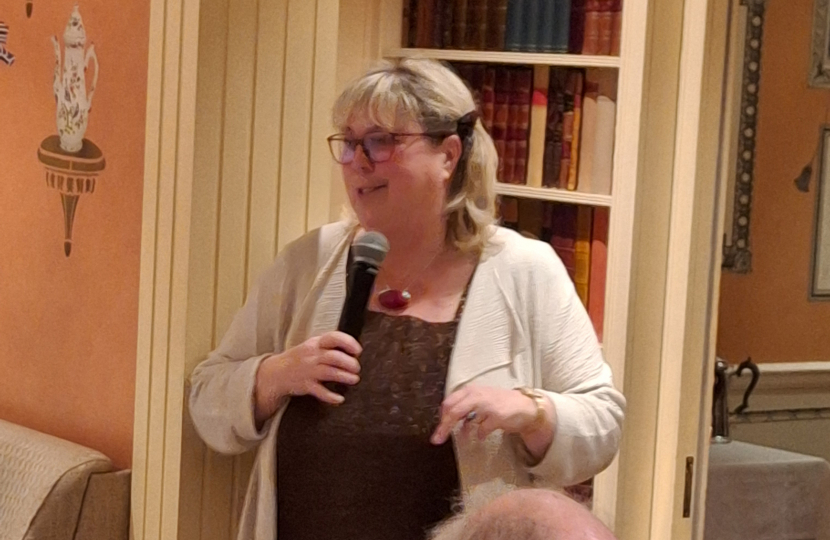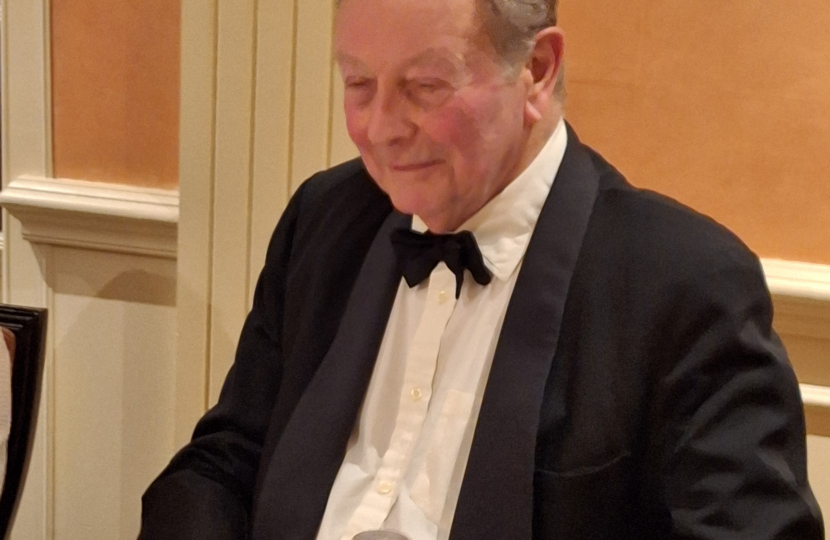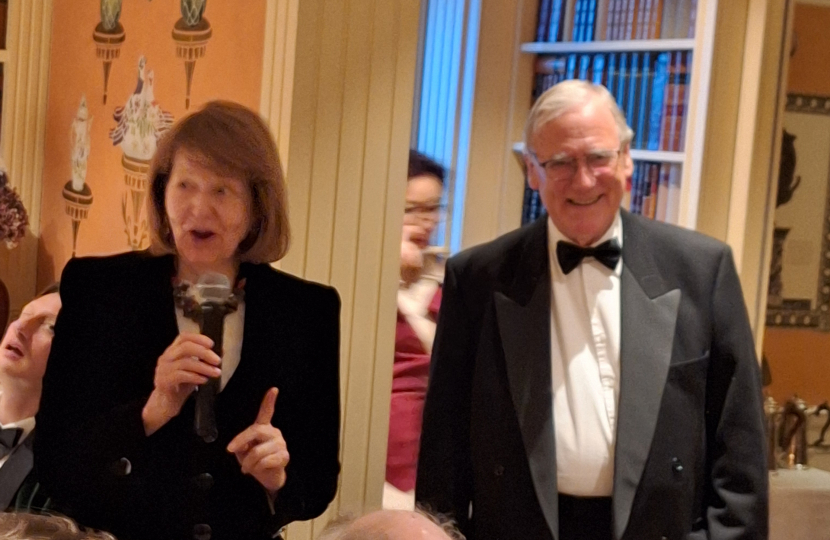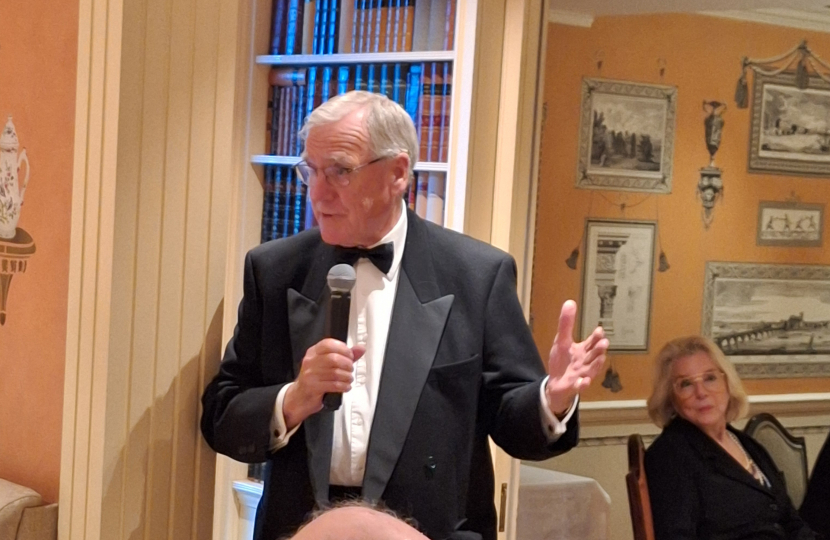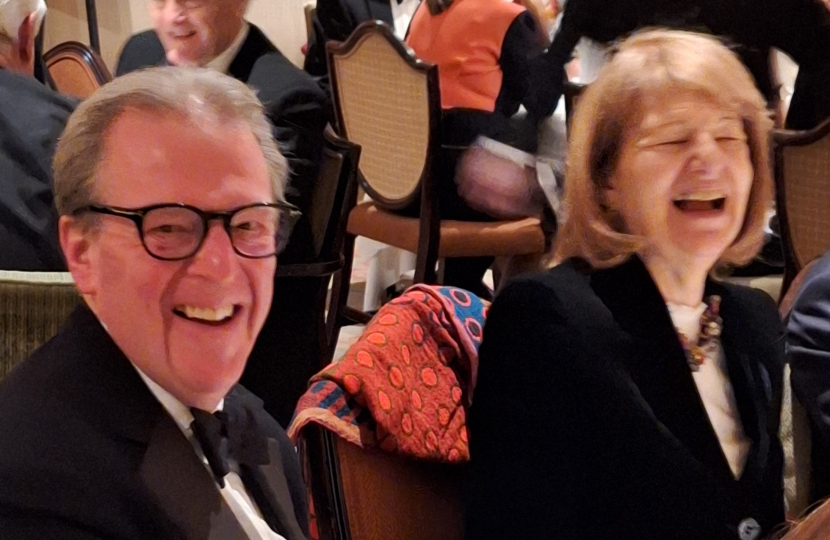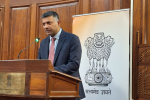A Dinner of the Conservative Foreign & Commonwealth Council (CFCC)
An animated and enjoyable dinner took place on Tuesday February 27th at Boodle’s in St James’s Street SW1 for a talk by Helen Fry on her latest best selling book ‘Women in Intelligence’.
Mr William James, a Member of both Boodle’s and CFCC, welcomed CFCC members to Boodle’s and Lord Hamilton of Epsom, Vice President of The CFCC, introduced Helen Fry - an historian and world war biographer to talk about her latest book and how she came to write it.
She explained that whilst researching for her writings about the First and Second World Wars, she had accidently uncovered stories of many women at the very heart of intelligence agencies and spycraft engagement whose stories had never been told mainly because they had been hidden by secrecy.
These were inspirational women. One of the earlier examples was Edith Cavell who in 1915 had been shot by the Germans for aiding wounded soldiers to be returned home. However, she was indeed much more than a nurse who helped others because in reality she had been running an espionage organisation that was separate from her official nursing responsibilities.
In the Second World War new spy methods had emerged with females from many differing backgrounds and nationalities recruited to fulfill a wide range of assignments. Female secretaries for offices of all descriptions, in effect, were often running spy agencies - in Germany itself, Vienna, Cairo, the Balkans for example.
As well as being behind the running of agencies and operations, women proved to be devastatingly effective interrogators; in the recruitment and training of agents; unnoticeable activities such as knitting coded messages in clothes; delivering messages as simple house wives in occupied lands; organising and carrying out logistics and working in hospitality sectors, amongst others.
Then there was Bletchley Park. Code breaking was a natural activity and at its peak some 7000 women were working there in the greatest of secrecy.
It is only in recent years that the names of many heroines who had spent their war years there have began to emerge. There was Betty Webb who was a member of the Bletchley team who broke the Japanese code in 1942. She confessed modestly that she wanted to do more for the war than bake sausage rolls at home and was better at code breaking.
Another remarkable story discovered in a small paragraph in Naval Intelligence records revealed that a female had been head of the department responsible for planning and implementing Operation Neptune being the ‘D Day’ landings.
The book has many such stories being the story of previously unknown women who contributed so bravely and competently to the intelligence services. There will still be thousands of women whose names are still hidden in secrecy. In essence the book lifts the veil on information that had been hidden for far too long.
Helen Fry’s command of her subject and inspiring description of the contents of her book, led to a wide range of questions to which she provided full responses. It was interesting to note in answer to a question relating to women and military intelligence that it was only in 1992 that women were able to formally join the Intelligence Corps, which perhaps is one example of why research into the role of women in intelligence had been rare.
Lord Taylor of Holbeach, former Chairman of the CFCC, gave the vote of thanks which was followed by a book signing, Thanks were given to the Boodle’s team for their excellent arrangements and warm hospitality to CFCC members. Thanks also to Melissa Crawshay - Williams for conceiving and overseeing the excellent evening.
William Knight
29.02. 2024

